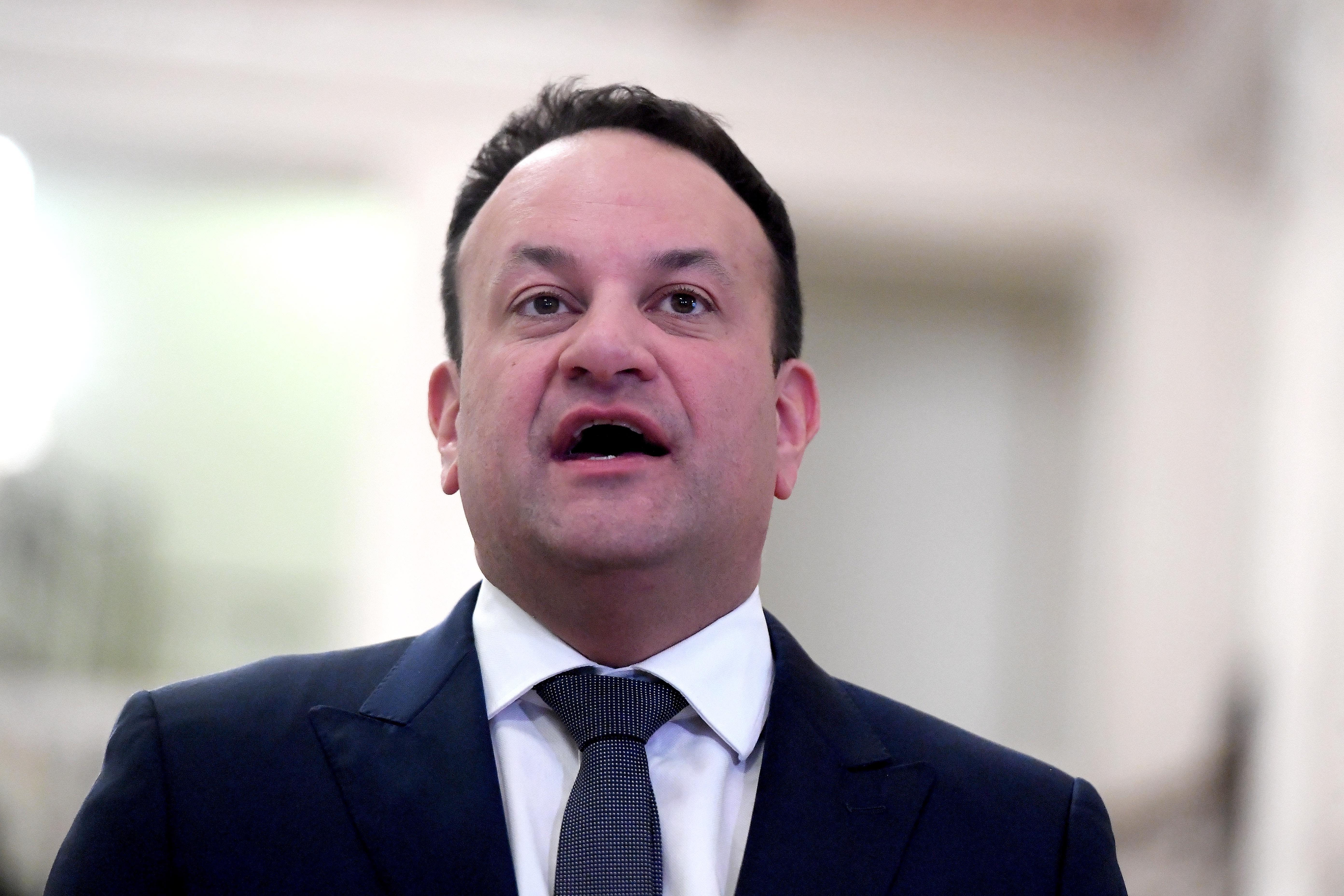Taoiseach contests claim Ireland is ‘reliant’ on UK armed forces
Irish premier Leo Varadkar was speaking at an event at the Munich Security Council.

The Taoiseach has taken issue with an assertion Ireland is reliant on the UK’s armed forces for the protection of its seas and under sea cables.
Leo Varadkar was speaking at the Munich Security Council 2024 during a side panel event on neutrality.
The Republic of Ireland has defence forces, including a navy, but has retained a long standing position of being militarily neutral.
Mr Varadkar was challenged that Ireland was in reality reliant on the UK’s armed forces in the protection of the seas and the protection of undersea cables.
He responded: “In relation to protecting our seas, we have our own navy, it’s not as strong as it needs to be, and we’ve entered into agreements with Pesco and Nato’s Partnership for Peace which particularly relate to the cables that are around the island which are important to us, and also important to our neighbours.
“I’m not aware of any particular UK intervention that’s helped us in that regard.”
Mr Varadkar was further challenged that it “falls to the Royal Air Force and Royal Navy in practice”.
The Taoiseach responded: “When has that actually occurred?
“When has there been an action or operation by the air force or the navy that has helped us?”
It was put to him that “everyone knows that in the case of a threat to those installations, that is the source of security which would be reverted to, just as is the case quite often in the instance of maritime safety, safety of people in difficulty and so on – and indeed the feeding of the 26 counties during the Second World War was guaranteed by the Royal Navy covering the convoys.
“I don’t think what I’m saying is in any way controversial.”
Mr Varadkar responded saying: “You’re saying in a hypothetical scenario this intervention by the Royal Navy or Royal Air Force may occur, to the best of my knowledge it has never occurred, and you’re suggesting that the Royal Navy or Royal Air Force would intervene in our territorial waters without our permission?”
It was put to him that the UK would likely intervene if there was a Russian incursion which also threatened the security of the UK.
Mr Varadkar responded: “That’s exactly the point, they would be doing it to protect themselves, not us.”
The Taoiseach also queried an assertion around the size of the Russian embassy in Ireland being connected with the proximity to UK territory in Northern Ireland.
Mr Varadkar said there are 15 diplomats and 15 other staff at the Russian Embassy in Dublin, which he described as “big for a small country like Ireland but far from huge”.
Bookmark popover
Removed from bookmarks